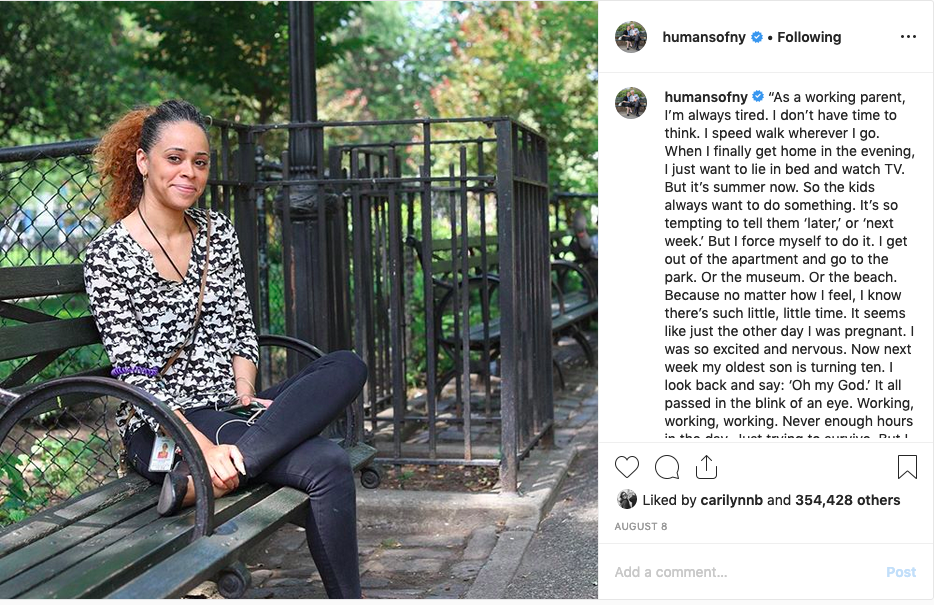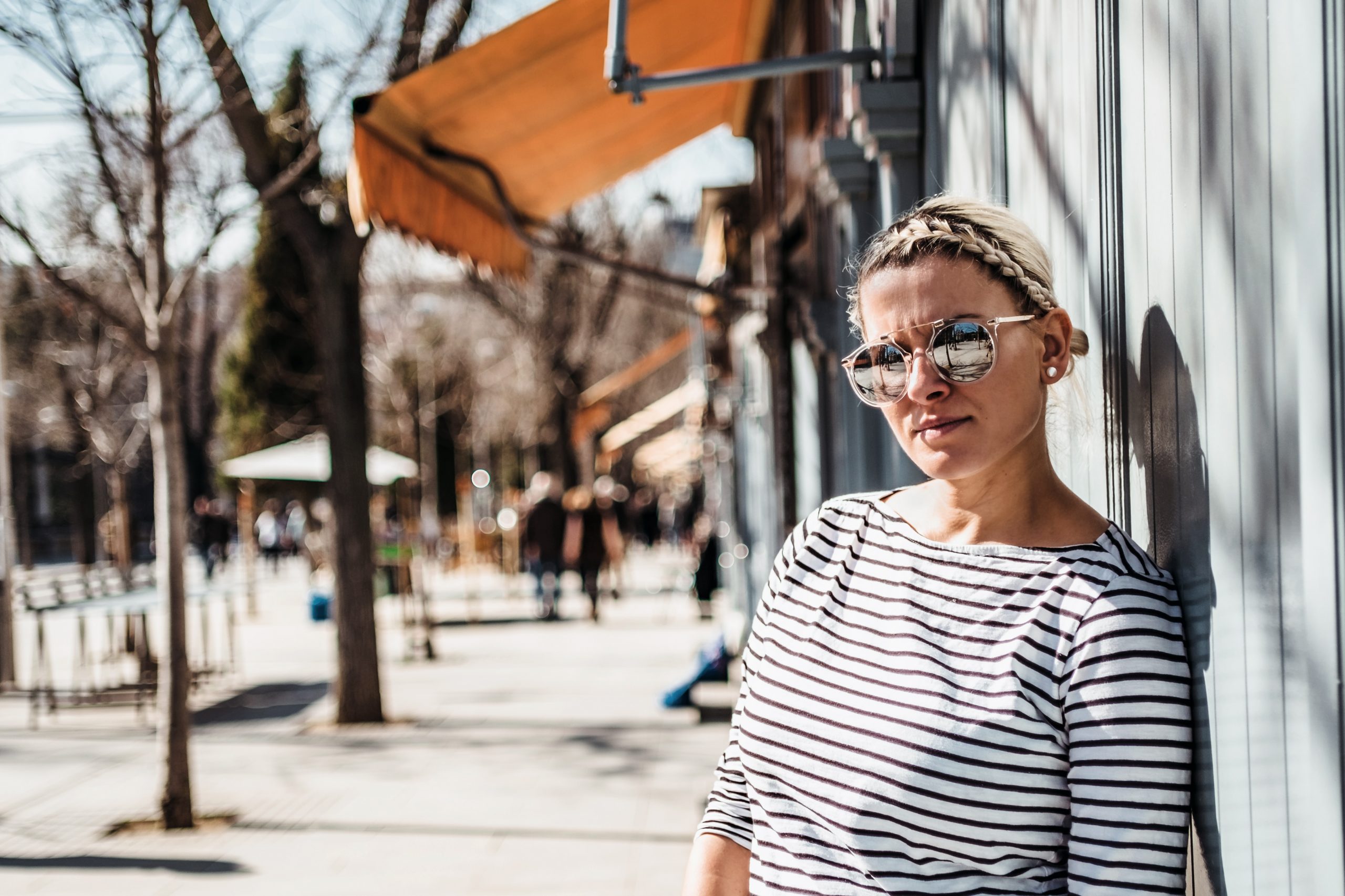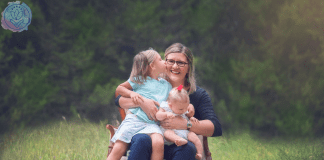A few weeks ago, I was scrolling through Instagram when I came across a post by Humans of New York. I always love the page’s insightful glimpses into ordinary people’s lives, and this one was no different. The woman being interviewed said, “I was a good mother. I was always proud of that. I always made time and space. Even if I was exhausted. Because I knew the time I was exhausted was the only time I had.”
Reading those lines, “I was a good mother. I was always proud of that,” rocked me to my core. I craved a more detailed peek into her daily life. What was she doing? How did she make that time and space? How did she know she was a good mother? And why is it so hard for me to be able to say the same thing?

From the moment I heard my son’s weak cry on the other side of the operating drape, uncertainty about my mothering abilities weighed me down like lead in my veins.
Before I’d gone into labor, I’d felt tentatively confident, if not entirely sure of what waited for me on the other side of birth; after all, I was a pediatric nurse. I was a professional at keeping kids alive.
But this kid, this 9 1/2 pound creature that I’d dreamed of and conceived and brought into the world, frightened me more than the medically fragile children to whom I’d given blood transfusions and chemotherapy.
This one was mine — there was no shift change, no doctor giving orders. Even though my husband stood by, changing diapers and beaming with love for our new plus one, I felt the bulk of the responsibility. There was only one of me, sleep-deprived and hormone-addled and completely unsure.
As a lifelong achiever and perfectionist — 4.0, valedictorian, summa cum laude — my brain almost subconsciously began tracking metrics of my success or lack thereof.
In short, from day one, I was keeping track of whether or not I was a “good mother” without even really realizing it.
Breastfeeding was a struggle –-a point against me.
The baby napped in his crib for a few hours — score 15 points.
The baby developed RSV and had to be hospitalized for a week — minus 50 points.

I was so depressed; I was put on medication and referred to a psychiatrist — minus 100.
During that first year and beyond, I questioned myself (and every parenting forum on the internet) constantly. I was sure there was a right answer, but I couldn’t seem to find it. No amount of googling could make my breasts produce enough milk. No mother’s group could assuage the guilt I had felt about the depression and panic during my son’s early weeks. No parenting book in my ever-growing stack could assure me of the certain outcomes of a happy, well-rested child who wouldn’t spend the rest of his life in therapy, living out the consequences of having a crazy and incompetent mother.
As my son grew older, my day-to-day panic subsided, but I never felt fully grounded in my mothering. As soon as I figured out a nap schedule, we hit a sleep regression or a wonder week or it was time to drop a nap. Every time I bought his favorite food items in bulk, he decided he didn’t like them anymore.
I would lie awake at night, berating myself for my failings, wishing that I were a good mother.
I didn’t realize that being a good mother wasn’t about having the answers all the time or getting every situation right. I thought it meant having my house in order and my emotions positive. I thought it meant smiles and delight all day long; days filled with organic baby food and wooden toys. I thought it meant certainty and firmness and structure.
I thought the chaos of my mental health and my physical surroundings disqualified me from being good enough.
Rather idealistically, my husband and I named our oldest son after the character Cal Trask in John Steinbeck’s doorstop of a novel East of Eden. In the book, Cal grapples with the dark fate he feels himself sliding toward, and his own desires to live up to his father and twin brother, who seem to embody goodness effortlessly.
When he fails to meet the standard he has set for himself, his wise friend and servant, Lee, tells him, “And now that you don’t have to be perfect, you can be good.”
Cal had failed, over and over again, even in ways that had caused great harm to his family. He knew he couldn’t be perfect. But now that the illusion of perfection was broken, he could be good. He could be satisfied with the pieces of goodness to which he could attain.
My husband and I loved the message of the book, but despite naming our child from its pages, I couldn’t stop believing I was fundamentally flawed and incapable of doing motherhood well.
It has taken years (and let’s be honest, lots of antidepressants) to melt away the conviction that I was the world’s most horrible mother. Two more children have joined our family, and with each repeated phase of life, my stress has loosened a little bit more. Having seen my oldest son make it through the boundary-testing third year of his life and manage to be sweet again on the other side, I can recognize that my middle child probably isn’t possessed by evil demons. Having survived a nap regression or twelve, I now realize the sleepless week will eventually pass, and I will rest again.
Perspective is everything, and I finally have a little bit.
But — I still feel uncertain in my abilities as a mother. I don’t know if that will ever change — it’s a product of my brain chemistry and the fact that mothering and selflessness don’t come naturally to me. Unlike the mother on Humans of New York, I don’t know if I will ever be able to look someone in the eye and say, “I’m a good mother, and I’m proud of that.”
But if nearly seven years of motherhood has taught me anything about myself, it’s that it’s OK that I’m not a perfect mother–that no matter what the color coordinated Instagram squares and public faces show, nobody is.
The name I gave my son as a twenty-something idealist is finally sinking in as a truth I’ve learned in my thirties.
I will never be a perfect mother. Released from that, maybe, just maybe, I can be a good one.











